Lecture by Novak, Zeljko and Sonja heard in one breath: Life lessons from Serbian sports legends
The world's best tennis player, Novak Djokovic, and his foundation, organized the panel "On the Path of the Champions" dedicated to providing assistance to parents of future athletes through education programs and wider support.
In addition to Novak Djokovic, the speakers included Zeljko Obradovic, the Partizan basketball club coach, who has won the most trophies in the history of European basketball, as well as Sonja Vasic, our celebrated basketball player.
Novak, Zeljko and Sonja shared much of their knowledge and experiences, which will surely be of great help to many young athletes and their parents.
Sonja Vasic spoke about the importance of the role of the parents and family in supporting their child's ambitions, but not forgetting that children come first and that the price can be high if parents force children beyond their capabilities, and thanked her own family for always having their support.
Zeljko Obradovic was asked about the importance of parenting and how to position authority towards different personalities.
"It always starts with what authority is. As a young coach, when I sat on the Partizan bench 30 years ago, I thought about what authority would be. I told the players then and now, you always have to act like you are a Partizan player, so you always have to think that way. Arriving, coming late for training, going to bed on time... But, authority is something else, because when I became a coach, I didn't sleep, I would set up each session, I had to have an explanation. The only authority I believe in is the authority of knowledge. It all comes down to giving everyone the same treatment and expecting the same from them. A team sport is different from and I have always tried to make that authority of knowledge the main thing," said Obradovic.
Novak also gave his opinion on authority and how much it affected his career and revealed that his son Stefan wants to play tennis every day, but that he did not want to force him to play at all unless he wanted to.
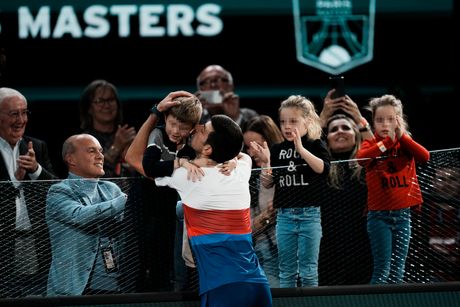
"The role of parents, depending on the situation in a family, one stays with an athlete for a longer period of time. For me, it was my father, while my mother looked after the house and the family, as mothers know how to. The great dedication of my parents and their teamwork, because they couldn't both be in training with me or both at home, was crucial, because parents are our first mentors. At the age of 7-8, we have no idea what a career is, we play some sport because we fell in love with it, we hit the ball, it fulfills us and we want to be there. As a young parent, at home, even though people think I'm doing it, that I insist on Stefan playing tennis, that's not what's happening, I said that if he wants to play, he will have my support. That is exactly what is happening, he plays tennis every day, he wants to be with me, with the group, with the coach. I have been playing tennis all my life, I have a club, so he has opportunities. But I don't want him to feel compelled, but to recognize how big his desire is and to fulfill it. Zeljko and I talked about how much society today and modern technologies have influenced children to be focused on the phone, there is no phone, in that sense parents are important," said Djokovic.
Video: Novak Djokovic talks about the authority of parents whose children are athletes
Sonja Vasic stressed that equality between female and male athletes has never been greater and that the modern era has helped in that.
"Earlier we had Jasna Sekaric as far as famous women athletes go, today parents are given a greater opportunity if they want their child to be like Ivana Spanovic or another of our famous athletes, so that is one of the better things arising from new technologies and the modern age.
I'm always looking for a psychological profile for all the players we bring, you start with why someone plays a sport, how they react to criticism, provocation, everything is in the psychological profile and I can know at any time what to expect. Children should always play the sport they want, no one should force a certain sport onto them. The child alone has to choose, but it is incomparably better to play sports than to play in the apartment with the devices that are available to them"
Video: Obradovic worked on the psychological profile of Partizan players: Everything they wrote to me about themselves was true
Novak about his mental strength:
"My personal mental strength and ability to cope with some moments, I was lucky to prevail in more of those moments, percentua, and it gave me a reputation, but I cannot single out one thing as a factor, it's a combination of several aspects which affect the mental structure of a young man. Of course there are some genetic predispositions, but I think that is overemphasized, to me it's an excuse, 'if you want to do something, you'll find a way, if not, you'll find an excuse'. At the age of 7, I had a clear goal to be the best in the world, I was lucky to be surrounded by people who believed in me. My father in particular, he acted very wisely and went to the people who were the most professional to ask them for their opinion, Jelena Gencic and Nikola Pilic, I was lucky to go to them until the age of 12.
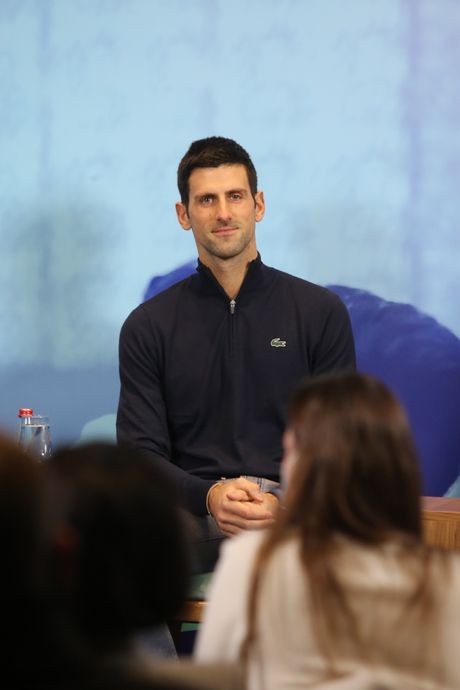
"Jelena Gencic coached Monika Seles, coached Goran Ivanisevic, for me she is one of the greatest coaches for that age group up to 14, and she said that she had never seen a greater talent than Monika Seles. That was enough validation for my father, and then he did as much as he could with those limited funds. Now, through this center, with Viktor, who is our head coach, both he and I are now coping in that role that Zeljko is in now, and we are listening and seeing that there is less commitment than in our time among young athletes. Both mental visions and clarity of vision of what you want in life. We are talking about tennis players who are 18-19, you have to know where you're going by then, have a plan. Simply, preparation must exist. It's a challenge for us, on the one hand it is an advantage because you make the most important decisions for your life, you either win or lose on the court, you are your own greatest ally. On the other hand, someone in your team can lift you up and take the burden off you, if you don't have a coach and parents who do that, parents sometimes have 'more important things to do', make money, for the child to play that sport, I understand all that... but simply both the father and the mother and the child must decide what they want and what they have at their disposal to make it happen," said Djokovic.
Zeljko Obradovic gave his opinion on how important it is for parents to recognize who is the right coach for a young athlete.
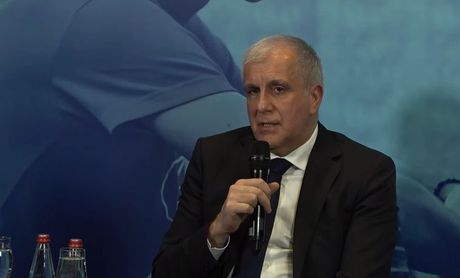
"We live in a time that is not the same as before, parents have some frustrations that they want to deal with through their child. When I talk to a young man, I ask him what is it you want, where do you see yourself, what is your ambition. No one achieved anything unless they were ambitious. It's important for parents to have a vision, not to take the child to someone for the sake of money, but to where they see that the child can develop. However, there are parents who are too ambitious, I had children who train, I would tell them honestly, this is not for you, enroll in some college, because I see how much time he needs to understand. Parents then take that personally, as if you have something against their child, because that is the greatest emotion for a parent, to watch their child do something, but through that emotion one should look realistically. Because the child will go to a mentor and to a friend, because children change after some age.
Sonja Vasic revealed what it was like in her family because of the pressure.
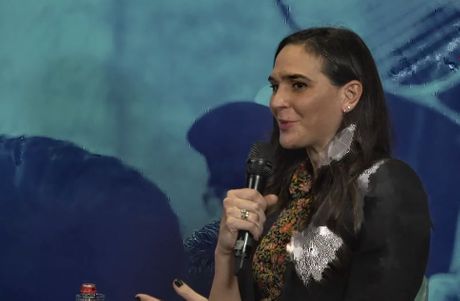
"We have been taught since childhood that you always represent yourself, that any decision you make, when you get to this age you understand how much some moments from some little park have left their mark. I had to admit later how right my father was, he had experience and saw farther, especially in those critical years from 17 to 22, because that is the period when it's most important and if you don't have someone you can look up to and look at realistically, that is how I entered the seniors from the junior categories and then the 'lions' ate me up. He knew that, although it used to seem cruel to me, when I look at it now, it carried an immense weight for my career. Sport has changed a lot, today it is a business even when it comes to small children. But again, I go back to the relationship with parents, the base of every athlete is their home, but sport also educates, because along with parenting, it is the basis for a lifetime. It's very important that parents talk to athletes, I am not a supporter of parents going to a lot of training sessions, but it should not be, 'I sent them to train, I have two hours for myself', either."
Novak reveals how much it helped him to analyze great champions with Jelena Gencic, but also to read poetry and listen to classical music
"It's all a matter of perception and understanding what a sacrifice means, we have different views on that. Something is always sacrificed, it can be seen that way, that I live my dream, that we agreed within the family that I am happy because I am going towards it. I never went on an excursion with my class in elementary school. At that time, it hurt me, but on the other hand, I was grateful, because I spoke about it with my parents and I realized that most of all I wanted to play tennis. It was quite challenging to play tennis during the 90s, where there were no funds, it was difficult to make things work. It so happened that Jelena Gencic came with her camp when I was 5 years old. After that, I asked my father and mother to buy me a racket, and I was hitting the ball against the wall. The first question was what happens when the first interest passes. You have to have the strength to withstand that flow. On the other hand, the role of parents is important in finding mentors, so that it doesn't seem imposed, as my parents did behind my back for my own good, to have people with whom I feel good, to know how I live, how I feel, they and Jelena Gencic had some direction of growing up and harmony with her. I went to her, I watched the analyses of all the great champions, we read poetry and listened to classical music. I was young, I couldn't figure it out then, but it also affected my nerves, how to calm down, to regenerate my energy, I was a very nervous child.
Obradovic and Djokovic joke about Partizan fans
"I hope that those who fell in love with tennis don't think that is the way to become the best tennis player," Obradovic said jokingly.
"To go back to what we lose and what gain, I guess it's logical to do something you love, you have to sacrifice a little for that. I enjoy every training session, I am motivated maybe more than ever. The fans who are the best in the world, thank you Novak," Obradovic said laughighly, to which Novak applauded with a smile, and it was clear that the joke was about the fact that Novak is a big Red Star (Partizan rivals) fan and that he recently enthusiastically supported the club against Barcelona.
"When they start that a song ten seconds before the end, it's something amazing, you have to get your knees scraped for such fans, to leave everything you have on the court. We won yesterday, I don't even know how we won," said Obradovic, the Partizan basketball club head coach.
Novak was asked what message the athletes are sending these days.
"That is something all athletes should ask themselves. In analyzing different generations, there is a difference in what an athlete represents in public life today. Athletes are aware that they are an inspiration to many, but also there is a lack of awareness of how young people look up to them on and off the pitch. We need to talk to athletes, coaches, people who are active in clubs and point that out. As Zeljko said, when you finish the game, you are a Partizan player no matter what you do, go to a restaurant or whatever. You have to represent yourself, your family and your club," said Novak.
Obradovic stresses that he influences his players and fans to act properly towards their rivals
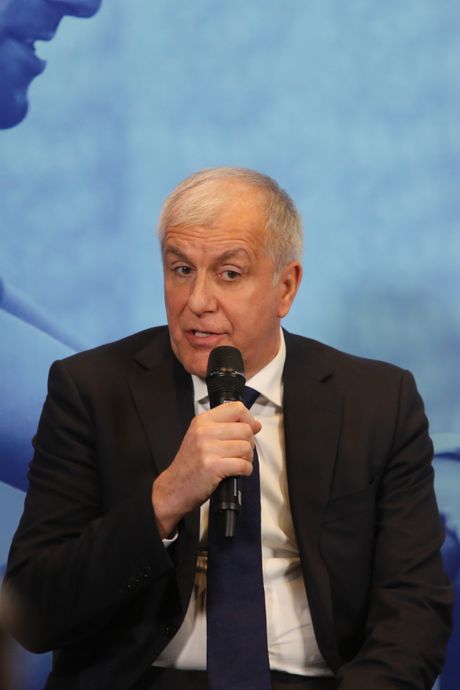
"I'll have to start going around town to check on them. I think that sport is something that brings people closer, that it's just a sporting match, and that if someone beats us in the end, we should congratulate the opponent, having given our best. I think it's something noble. Since I came to Partizan, I have been trying to influence Partizan fans to be friendly towards their opponents. I've received pleasant welcomes (by opponents), I get greeted with applause, of course that pleases you, I will influence my players to behave like that. One of the things I see, my entire professional staff is a service to them and they have to treat these people properly, not only me, but also the assistant coaches, they need to be treated even better than me. These are all important people for the players. And one more thing that is important, they are there to play basketball, they can't lose concentration and energy on something else. I told them they can't have discussions with referees.
Obradovic's advice to parents on what to do if their child no longer listens to them.
"If your child doesn't trust you, you have to find out what the problem is. There comes a moment when a child no longer listens to you, whether it's the influence from school, their buddies from the neighborhood, but you have to give children a real example, you must not behave one way and be telling the child something else, you have to communicate with the child with arguments. They can't understand everything immediately, but that is life, that doesn't mean we should not give the right advice to children," said Zeljko Obradovic.
Zeljko singles out Bogdan Bogdanovic as an example of a player whose progress he is especially proud of
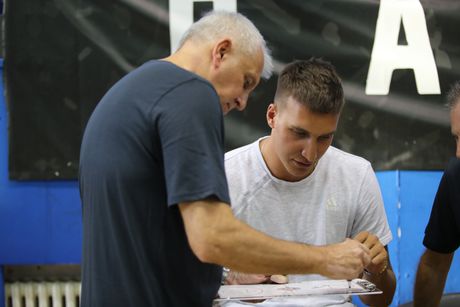
"Bogdan Bogdanovic, because he is like that, not only Bogdan, there were many players, time was needed and I always had an idea and he had an idea. Individual conversations are something that helps. It was difficult with Bogdan at first, he needed a period of adjustment to understand what I wanted from him, when he realized it, then he became a dominant player, he continued to be a leader, he has that character, because even in the moments when I criticized him the most, he accepted it. I am terribly proud of them."
Mario Hezonja said that Zeljko is the most intelligent man he has ever met and that he could lead a team in the NBA, so he was asked by the Telegraf journalists to comment on that.
"I thank him for that statement, I don't know how he came up with it. I've met with him, but not that often. The difference between the NBA and our basketball - I was recently with Brad Stevens who was the Boston coach for eight years, an outstanding coach, I sat with him for 45 minutes after a game, the difference is that there are several rules, and in the sense that those differences were much bigger before. Now you have three players who dominate, who are Europeans, our own Jokic, Luka Doncic and Giannis, who is the most physically dominant. It (NBA) is closer and I am sure that the time will come when a European coach will show what they know in the NBA," said Zeljko Obradovic.
Novak on importance of psychologists, or people who serve as psychologists and are not professionals, as well as of a holistic approach
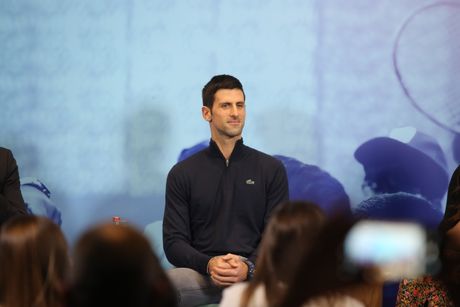
"I would like to refer to the statement that we should talk about it more often, and there should be a little more awareness among journalists about the importance of this topic. Personally, I always give more space, I try constantly, I always give and ask for more questions if we are talking about some important topics, for me this is one of the top three topics for everyone who participates in the development of a young athlete. I am extremely inspired by all our experiences shared with you. I also spoke to my wife, I hope this is all filmed, so we can show it to everyone. Somehow people are used to basketball players talking to basketball players, I think we need to network more, because the basis is the same, it's important to understand aspects of developing and maturing of a young athlete and that holistic approach which is important, which I applied based on the people from whom I learned a lot, and it was mostly influenced by Jelena Gencic - the people I hang out with, what music I listen to... it all affects how I will be on the court, how important what you do after you finish training is.
In team sports, they have a nutritionist, psychologists, Sonja knows that well. It's different with us, if you are not within the TSS (Tennis Association of Serbia), then you have to manage, not only athletes, but also parents, who are looking for a mentor and people who can help emotionally and psychologically, but I also insist that the athlete seeks a solution. Psychology is a wide field, it's not that simple, but the way that always works is to take responsibility yourself and to develop and become aware of the knowledge and have insight about the character and your characteristics, that you arrive at that. Maybe a skier's psychologist doesn't suit you, who has won everything and says that he has never worked with a psychologist. And then the parent hears that and says, 'shouldn't he have a psychologist?'. It's different for everyone, but he said that he had people with him who served as psychologists, who told him that he had to work on himself, if he had any emotional blocks, to know how to work on it. Digitization of the world allows us to have access to information, you can find good and bad things with a Google search, and then based on yourself you decide what is good and what is not. Essentially it all depends, it's very important to work and direct and give energy on the mental level as well as on the physical. Parents should also work on identifying a person who can help the athlete develop into a strong person."
Novak also described how dedicated coaches must be, from his point of view, but also from the point of view of coaches who work in his tennis center
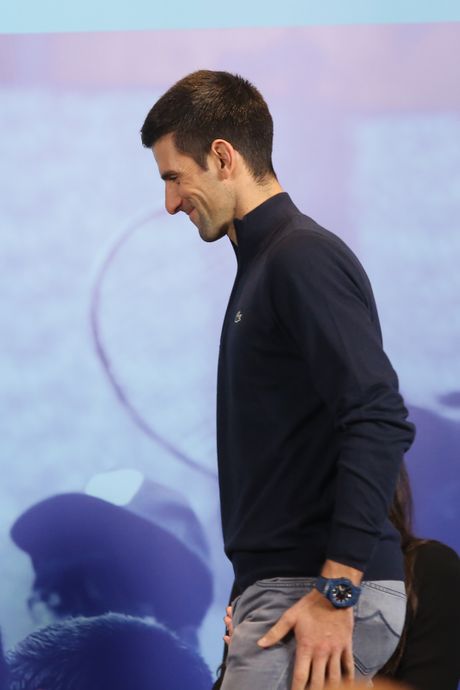
"I watch on the internet, on YouTube, or if I find somewhere a video of a coach working with a five-year-old child and the way they explain how to technically perform some move, how to tactically set up and construct a point. They work with them in the simplest way, and that gives me ideas. You can find something in every aspect of sporting activities that can give you ideas. On the other hand, the coach is an educator, they are more than just somebody taking balls out of the basket. That is an ideal coach, I strive for perfection. I can't influence other people, except by example. I just ask my coaches at the tennis center to be dedicated, and when you are dedicated, then you will see how much you influence a young athlete in multiple roles. The coach must talk to the parents and they must know how the child behaves, whether the results are there, but also to let the coach deal with it."
Should parents be too involved in their children's careers?
"It's relative what is too much, what is too little. It's difficult to define, so I think it's important that parents do not do things on their own, for example Sonja's father was in basketball, so he could direct her, but many parents don't know much about a sport and have to ask experts in that sport and then it's easier. Zeljko mentioned the authority of knowledge, how important it is to make the best decision for your child."
Is it harder for children to play sports because of modern technologies?
"It is harder, phones are everywhere, TV is everywhere, we live in such an age of commercialism, it sells... I'm not saying it's completely bad. I remember when I would go out I'd just tell my parents and play in front of the building all the time, outdoors, we'd play football, hide and seek... But I hope that with these panels we will motivate parents to do some things in a different and correct way in the future, if parents participate in the life of an athlete, today there is also the internet, where many experts wants someone to ask them something, I put myself as well at the disposal. It was the most beautiful experience for me at the Olympics, many people approached me and asked me about mental readiness, physical preparation and so on... what kind of knowledge is that if you don't want to share it, the greatest knowledge is that of life."
How do you explain sacrifice to a child, like when you didn't go on school excursions? How was that explained to you.
"I am one of those who believe that a child, no matter how young, has enough awareness and autonomy to be able to judge whether something is good for them. Parents are there to guide, but if a child decides that it is too much for him or her, it is unlikely that anyone will be able to help. Or if it goes against a child's will, things happen in some sense, but then what did you gain and what is the emotional side of that child. From my experience, I've seen many champions who have won many trophies, but their private lives are not so good, they still have to look for something to treat what wounds them. This may not be entirely on topic. Because we want to be healthy and aware, and sports can ultimately affect your health. But you have the opportunity, if you are aware that it is important and that you can work overtime on the court, to see how to bring yourself to the most optimal state of mind and have longevity. I don't have the answers to all these questions, but if we all get together, athletes, coaches, parents... let's all talk and something good will surely come out of it," Djokovic concluded.
Video: Obradovic tries to get Djokovic to say that Partizan fans are the best in the world
(Telegraf.rs)
Video: Sneg prekrio Staru Planinu: Nestvaran prizor
Telegraf.rs zadržava sva prava nad sadržajem. Za preuzimanje sadržaja pogledajte uputstva na stranici Uslovi korišćenja.

